
GLOBAL
INNOVATION
SUMMIT
2021
DEC 01 & 02
08am-10.30am // 4pm-6.30pm - ET
Next session starts at 8am - eastern time
What will competitiveness look like in the future?
Join two days of panel discussions and presentations about strategies to drive future growth and inclusive prosperity with global leaders working on corporations, government agencies, universities, and policy organizations.
Building the future economy is not a simple task. It requires decision-making and action across multiple competitiveness areas.
Today, societies are grappling with massive global challenges, such as climate change, the COVID-19 pandemic, poverty, gender gaps, and rising income inequality. The issues at stake are high and require cross-sectoral collaboration and partnerships.
Welcome to the GIS 2021
(Dec 1 - 8.00am-ET)
GFCC leaders welcome participants to the Global Innovation Summit 2021 on Future Competitiveness. During two days, representatives working on the corporate sector, government, and innovation agencies in more than 30 countries will discuss strategies to weave innovation, sustainability, resilience, and inclusiveness into business models and policy frameworks through partnerships and cross-sectoral collaboration. Check the speakers who will be joining the sessions and the agenda highlights below.
Day 1 - Segment 1
Future Competitiveness
(Dec 1 - 8.10am-ET)
What factors will define future competitiveness? How can we weave innovation, sustainability, resilience, inclusiveness, and partnership into future competitiveness strategies? How can we translate those topics into guidelines for action across different competitiveness strategy decision areas?
In 2021, the GFCC has engaged with its members and fellows in over 30 countries to review these questions, a process that was expanded and enriched through the Frame the Future conversation series. The proposals originated through this process are included in the GFCC 2021 Global Competitiveness Principles and the Frame the Future report, two critical documents that GFCC leaders will launch in this session. Register for the GIS 2021!
Meet the speakers for this session
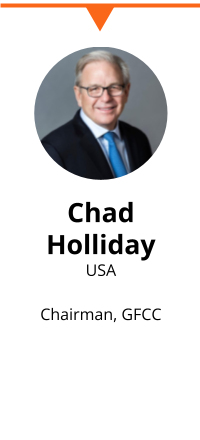
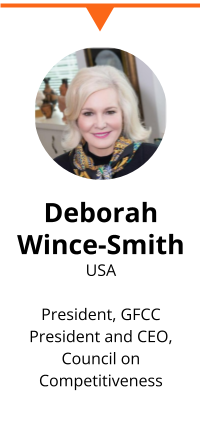
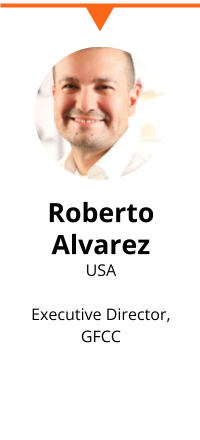
Panel Conversation: Frame the Future
(Dec 1 - 8.25am-ET)
Through the Frame the Future series, the GFCC convened business, policy, research, and nonprofit leaders from 26 different nations, and welcomed participants from 62 countries. The insights and ideas shared during the Frame the Future sessions were processed to generate goals related to five future-defining competitiveness themes and a series of recommendations for future competitiveness strategies.
This session will further unpack ideas and serve as a platform for GFCC Board members to share their perspectives, learnings, and insights on future competitiveness strategies, as well as to explore what roles the GFCC can play in helping advance competitiveness and prosperity in different realities. Click here and register for the GIS 2021!
Meet the speakers for this session

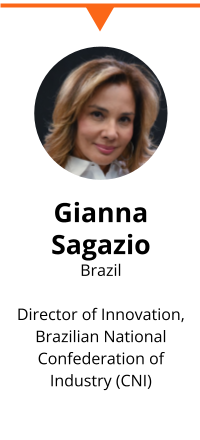
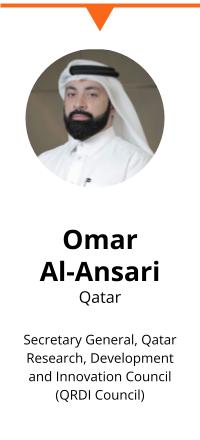



Keynote: Future Competitiveness & Prosperity in a Disrupted and Turbulent World
(Dec 1 - 9.20am-ET)
Today’s world is marked by frequent disruptions and uncertainty. Citizens across the globe confront transformations occurring at warp speed, and face social and economic realities that are growing in complexity. They also continually experience new professional and personal challenges – from the need to reskill and upskill to adapt to a changing economy, to making sense of misinformation and outright fake news.
In such a turbulent environment, perceptions of life and wellbeing are in flux — and leaders in cities and countries across the globe are challenged to improve citizens’ quality of life, create new economic opportunities, and advance prosperity. In this session, participants will gain first-hand insights on future competitiveness, based on exclusive Gallup data and analytics about the state of the world and citizens’ perceptions of their lives and wellbeing — as well as perceptions of economic growth and prosperity worldwide. Click here and register for the GIS 2021!
Meet the speaker for this session
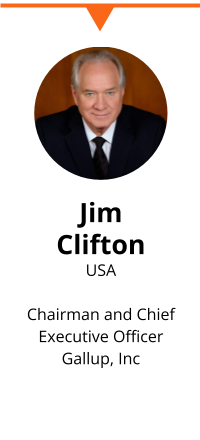
Panel Conversation: Future Innovation
(Dec 1 - 9.45am-ET)
Innovation is the primary driver of economic growth and prosperity, and it can be an asset in solving global challenges, such as climate change. For the past decades, accelerated technological developments and digital solutions have catalyzed new business models and created new opportunities for entrepreneurs.
Since the beginning of the COVID-19 pandemic, innovation has gained strong momentum. The disruptive scenario pushed businesses, governments, and citizens to adapt and find alternatives for delivering services, selling products, and being productive at work. Digitalization and innovative practices have helped societies understand, respond to, and recover from the health and economic losses of the past two years. Furthermore, the development of a COVID-19 vaccine in record speed enabled by a network of international collaboration was ground-breaking and set a new standard for the speed of innovation in the future.
The nature of innovation itself is changing. It is increasingly systematized, open, based on data and experimentation. Countries need to invest in creating low-friction business environments that are attractive to innovators, while training and supporting entrepreneurs at scale to build a competitive advantage. Regulations and institutions must be designed to be conducive to innovation, rather than stifling or hindering it. For that to happen, governments need to work in partnerships with business and facilitate and the circulation of resources with the private sector. Click here and register for the GIS 2021!
Meet the speakers for this session
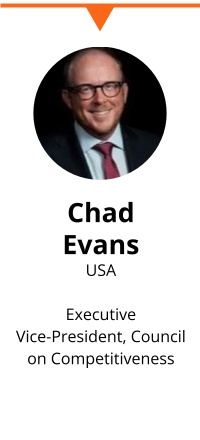

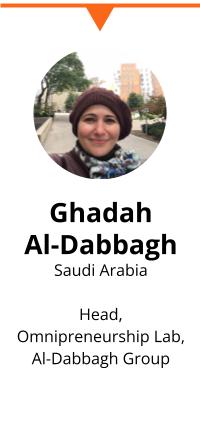

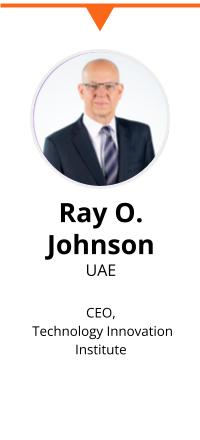
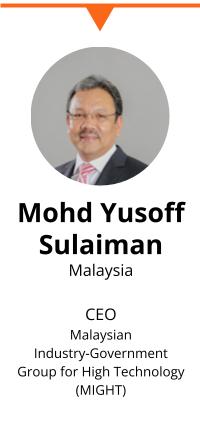
Closing of Day 1 - Segment 1
(Dec 1 - 10.35am-ET)
GFCC leaders wrap up concepts and ideas discussed in the first segment of the Global Innovation Summit 2021.
Day 1 - Segment 2
Opening Day 1 - Segment 2
(Dec 1 - 4.00pm-ET)
GFCC leaders welcome participants to the second segment of the Global Innovation Summit 2021.
Panel Conversation: Future Inclusiveness
In partnership with Lockheed Martin Corporation
(Dec 1 - 4.05pm-ET)
Societies are wasting human potential. Today, there are more than 773 million illiterate adults around the globe. Half of the world's population, 3.7 billion people, most women in developing countries, do not have access to the internet. These data reflect on big asymmetries across countries and between urban and rural areas in developed nations.
The COVID-19 pandemic highlighted these disparities and raised the call for the international community on the flipside of technology progress and its potential to create larger social divides. Lack of access to basic infrastructure, quality education, skills, and job opportunities impede people from participating in the innovation economic and hinder a country's ability to thrive and improve its population's well-being.
Lowering the barriers that prevent citizens from participating in the innovation economy is a critical issue worldwide. Governments and companies need to address these social gaps and tap into the transformative potential of technology to drive positive change. Including more people in the innovation and digital economy can unleash value creation and productivity, driving inclusive prosperity and higher incomes per capita. Research indicates that diverse teams with a mixture of talents from different backgrounds, areas of expertise, and experiences pay off. Diverse groups are better at decision-making, find more creative solutions to problems, design better products and can open more market opportunities. Evidence shows that diversity pays-off.
At the same time, technology comes with challenges and can further accentuate existing divides. Many studies have recently pointed to some of the downsides of tech systems based on Artificial Intelligence (AI), such as the existence of biases against minorities in algorithms. Click here and register for the GIS 2021!
Meet the speakers for this session


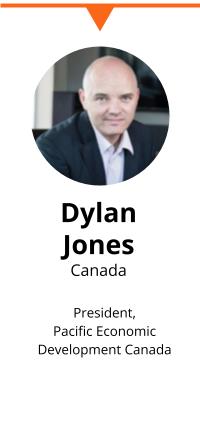
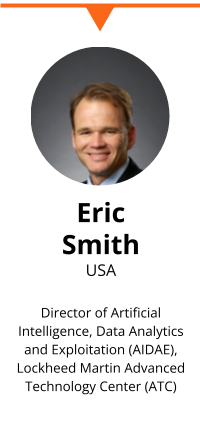
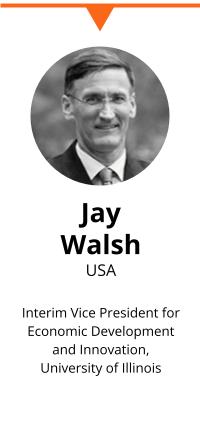
Leadership conversation: Future Resilient Societies
(Dec 1 - 5.00pm-ET)
Around the globe, there is a growing emphasis on the use of technology to improve quality of life and address societal challenges. The development and deployment of novel technologies, products and services can be oriented toward advancing humanity and society. Countries such Japan are at the forefront of this trend, with the notion of “Society 5.0” epitomizing it.
Advancing societies increasingly means preparing them to face extreme events, future crises, and shocks – from pandemics and epidemics to cyber-attacks. Resilience – the capacity to absorb a shock, adapt and restore performance – has become a critical feature for all societies. As a result, the development of resilience capabilities is emerging as a priority for science and technology investments in various nations.
Building future resilient societies is a complex endeavor that requires capabilities, infrastructures, systems, processes, protocols and more. The capacity to collectively visualize the future and mobilize resources from different stakeholders can enable faster translation of knowledge, technology and artifacts into the market. While that is challenging in advanced nations, it certainly is even harder in emerging countries, most of which are likely to be seriously affected by climate change and other shocks. The state of the world calls not just for actions at the local and national level but also for global cooperation.
Meet the speakers for this session
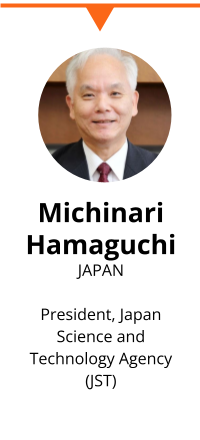


Panel conversation: Future Sustainability
(Dec 1 - 5.25pm-ET)
Humanity has reached a critical point. The planet can no longer stand the current rate of deforestation, pollution, and environmental degradation without compromising life on Earth with significant biodiversity loss. The Paris Climate Agreement signed in 2016 and the United Nations Sustainable Development Goals signaled to governments, businesses, and populations, the urgency of pivoting sustainable development, decoupling economic growth from the depletion of natural resources.
Although many developing economies are reluctant to advance climate commitments, sustainable development doesn't have to be a burden or cause economic losses. It is quite the opposite. There are massive opportunities at the intersection of sustainability and innovation. A focus on sustainability can catalyze the creation of new technologies, new business models, entire new industries, drive jobs, and raise living standards. But a successful and must-needed transition depends on providing incentives to all players involved in today’s economy and production systems.
Science and technology have a critical role to play in advancing sustainability. New tech solutions can dramatically improve the productivity of natural resources and reduce humanity’s footprint on the planet. Experts who participated in GFCC conversations defend those investments in clean technologies must triple in the next ten years to avoid a climate disaster.
Technology development can be coupled with the adoptions of production systems based on circular models throughout value-chains. One of the critical resources to be reinjected into value and supply chains is Carbon. Carbon dioxide emissions can be integrated into new production models that reuse the carbon byproduct. Investments in new storage, sequestration, and reprocessing technologies can become game-changers in the fight against climate change. At the end, it seems also crucial to set a price for carbon.
Meet the speakers for this session


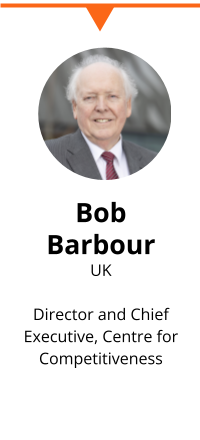



Closing of Day 1 - Segment 2
(Dec 1 - 6.15am-ET)
GFCC leaders wrap up concepts and ideas discussed in the first day of the Global Innovation Summit 2021.
Day 2 - Segment 1
Opening of Day 2 - Segment 1
(Dec 2 - 8.00am-ET)
GFCC leaders welcome participants into the Second Day of the Global Innovation Summit. On this day, discussions on the importance of building resilient and inclusive systems for enhancing future competitiveness continue to take place. Leaders explore future market opportunities in Africa, and a leadership conversation reveals pathways for fostering future innovation hubs. Check other agenda highlights below.
Panel conversation: Future Markets - Spotlight on Africa
(Dec 2 - 8.10am-ET)
Africa is a naturally endowed, diverse, fast-growing, and young continent. It presents many opportunities for future growth, but also suffers from the lack of infrastructures and capabilities, and persistent low levels of human development. To deliver the promise of a better future, African nations need to grow and develop their economies, talent pools, business structures and institutions.
Young populations in Africa are eager to adopt new technologies and entrepreneurship is gaining momentum in the continent. Venture capital has been growing in number of deals and volume, and digitalization opens new possibilities for traditional industries to catch-up and leapfrog. Nevertheless, innovation in Africa is constrained by a relatively limited tech talent pool, in such a way that training people at scale and speed is a critical task needed to unleash growth. To their advantage, many African countries have the possibility of experimenting with new technologies and business models (in areas such as fintech, drones, sharing economy and others) in a more flexible way than highly regulated economies in the global North can.
In a world challenged by climate change and increasingly frequent shocks, sustainability and resilience are also fundamental treats of future competitiveness strategies. The good news is that African economies do not need to replicate the development paths of Western economies and can adopt ESG best practices to develop their natural resources and infrastructures in a much more sustainable way, generating income and growth opportunities. To do that, they will need expertise from around the globe, connections (and connectivity), and solid business cases anchored in local ventures, projects and entrepreneurs. Click here and register for the GIS 2021!
Meet the speakers for this session
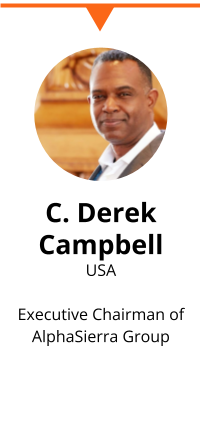
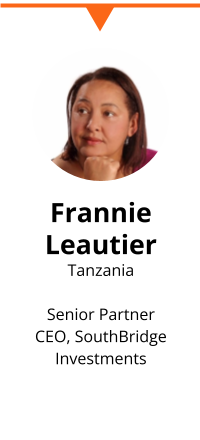
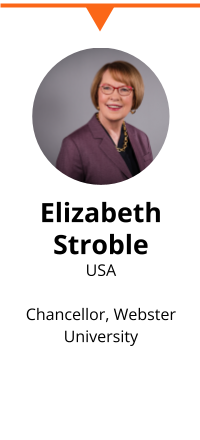
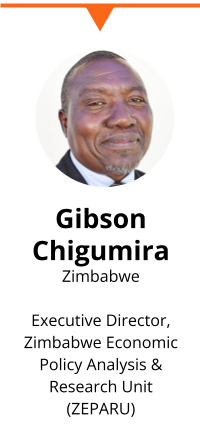


Leadership conversation: Future Innovation hubs
(Dec 2 - 9.05am-ET)
In a time of accelerated technology change, cities and regions worldwide are in a race to reinvent their economies and reposition themselves globally. Building a future innovation hub requires multiple factors cross-sector collaboration, a world-class talent pool, investment, a critical mass of businesses that operate globally, functional infrastructures, global connectivity and more. Above all, cities and regions need to understand their realities and assets, make strategic choices and bring all relevant stakeholders onboard.
Cities and regions need to develop new capabilities and nurture future industries to change their economic profiles. Fast-growing technologies such as AI, synthetic biology, advanced materials, clean energy, robotics, advanced manufacturing provide clues on the direction to pursue. Understanding the interplay between existing and future assets (and capabilities) is a key dynamic in that process. Industry-research-government collaboration is particularly critical to position cities and regions in the global innovation map, as they must accelerate the translation of knowledge into their economies, enhance their talent pools and connect with global knowledge and business networks. Universities and research organizations have critical roles to play and should be essential players in any strategies and initiatives to advance local economies. Click here and register for the GIS 2021!
Meet the speakers for this session
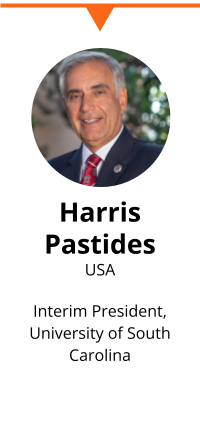
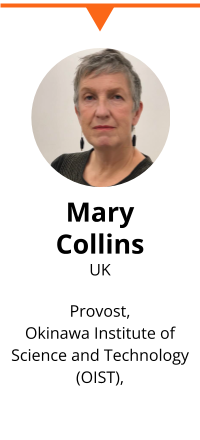

Meet the speakers for this session
Panel conversation: Looking Ahead
(Dec 2 - 9.35am-ET)
The Greek economy is going through profound changes and the 2021-2026 National Recovery and Resilience Plan (‘Greece 2.0’) aims to further accelerate structural transformations that would push the economy and society into the future, very much following the lines of the five future-defining topics covered in the GFCC Frame the Future series - innovation, sustainability, inclusiveness, resilience, and partnership. The so-called ‘Greece 2.0’ plan is organized into four main pillars – (i) green transformation, (ii) digital transformation, (iii) skills and social cohesion and (iv) private investment – and includes important institutional innovations in its setup.
In this conversation involving Greek and GFCC leaders, the audience will hear first-hand about the developments taking place in Greece, how they connect with key themes and trends in the global economy, prospects for future growth and the plans for the 2022 GFCC Global Innovation Summit, to be held in Athens. Click here and register for the GIS 2021!
Meet the speakers for this session


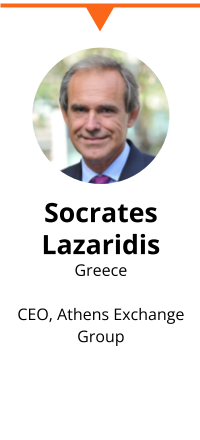
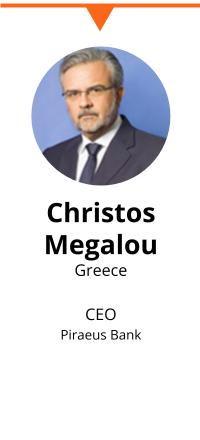
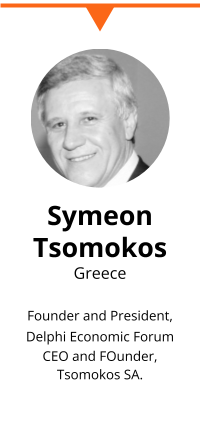
Closing of Day 2 - Segment 1
(Dec 2 - 10.25am-ET)
GFCC leaders wrap up concepts and ideas discussed in the first segment of the 2nd day of the Global Innovation Summit 2021.
Day 2 - Segment 2
Opening of Day 2 - Segment 2
(Dec 2 - 4.00pm-ET)
GFCC leaders wrap up concepts and ideas discussed during the second segment of the Global Innovation Summit 2021.
Panel conversation: Future Resilience
(Dec 2 - 4.05pm-ET)
The importance of building economic resilience has been stressed during the COVID-19 pandemic. Supply chains were under enormous pressure to deliver essential goods last year and are now under scrutiny due to shipping delays and shortages of semiconductor materials. Cities, countries, and organizations need to develop and enhance the capabilities to bounce back, adapt, and perform during a crisis.
Societies are living through a period of uncertainty, in which the frequency of extreme weather events is increasing. The possibility of a new pandemic or epidemic has not been discarded. And digitalization brings risks of cyber-attacks. In that scenario, building resilience as a capability will be a key part of strengthening future competitiveness.
Technology and data provide important tools for fostering economic resilience. Countries, cities, and organizations need to invest in creating trustable and transparent data sets to share information across the board as a strategy for preparedness and risk mitigation. It is critical to develop memory capacities to learn lessons from past crises to tackle the vulnerabilities of economic systems.
Businesses also have a role to play in assessing the resilience of the economic system at the local and national levels. It is crucial to coordinate supply chain issues to guarantee the production of critical materials for all citizens. Click here and register for the GIS 2021!
Meet the speakers for this session

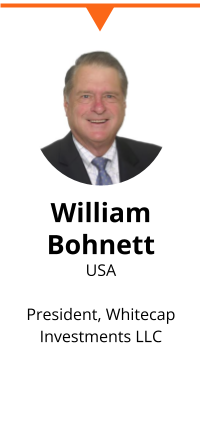
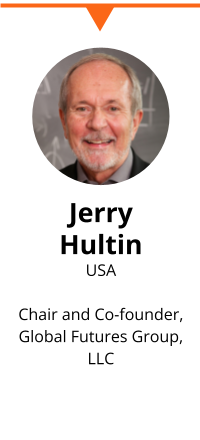


Keynote: Future Knowledge Networks
(Dec 2 - 5.00pm-ET)
The most pressing issues societies face today require the combination of expertise from several disciplines, cross-sector and global collaboration. From climate change to cyber resilience, from digital inclusion to global health surveillance – for instance, warning or immune system for the planet.
World-class research is a global enterprise and collaborations are common in scientific communities. Nevertheless, data coming out of a 1990’s RAND Corporation’s research suggests that global collaborations are forged at the local level – most of the bonds and connections that lead to global collaborations are formed when scientists work face-to-face or side-by-side.
The COVID-19 pandemic has accelerated innovation and we saw vaccines being rolled out to the market in record time – the world would tremendously profit if we could make the speed of innovation observed during the pandemic the standard going forward. Nevertheless, the pandemic also disrupted travel, the co-location of researchers across organizations and borders and face-to-face work.
The backdrop for the transformations taking place in global research collaboration and knowledge networks includes other key aspects. Digital technologies and open data are changing the way science is done; open innovation and citizen science are gaining momentum; countries in Asia and the global South have significantly expanded their talent pools and research capabilities; funders are showing a taste for bigger and integrated research projects that take technologies closer to the market than traditional research. In addition to all of those, we see a new global strategic competition shaping up.
The scenario suggests many questions about the future of global knowledge networks. In other words, about how we can better mobilize knowledge resources in the world to solve critical challenges and advance humanity. Click here and register for the GIS 2021!
Meet the speaker for this session


Panel conversation: Future Partnerships
(Dec 2 - 5.25pm-ET)
Societies face complex problems that can only be solved through collaboration across sectors, leveraging technologies from different sources, and human capital from across the globe. Global challenges such as climate change, the depletion of natural assets, contagious diseases, and cyber threats require collaborative problem-solving. Engaging talent from different disciplines, sectors of society and parts of the globe is a central part of the equation to solve global issues and create new economic value.
Public-private collaboration is crucial to enable and fund novel solutions for the challenges societies are facing. From the local to the global level, it is important to create and energize networks that link corporations, non-profits, entrepreneurs, and government entities. Beyond that, there is a need to act on purpose in weaving such networks.
The GFCC is a multistakeholder organization that harnesses the power of cross-sectoral partnerships to advance competitiveness and citizens’ well-being in all nations. Universities, government agencies, private sector councils, and corporations participate in GFCC activities together, discussing the most pressing issues in the competitiveness agenda, and exploring new models and solutions that could bring positive change to their realities. Click here and register for the GIS 2021!
Meet the speakers for this session

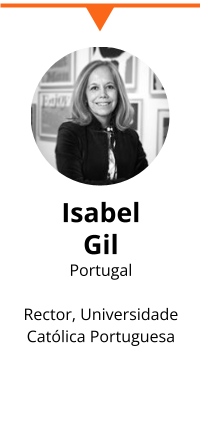


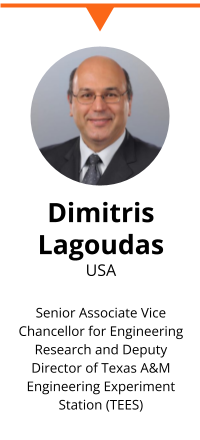

Closing of GIS 2021
(Dec 2 - 6.15pm-ET)
GFCC leaders wrap up concepts and ideas discussed during the Global Innovation Summit 2021 in partnership with the Council on Competitiveness.



THE GIS 2021!
Leaders and populations across the globe have the task of setting a global competitiveness agenda that embeds sustainability, resilience, and inclusiveness into actionable plans to drive a better future for all. Partnerships across sectors will be crucial to making that happen.
You can access the post-event assets page by clicking here.
© The GFCC